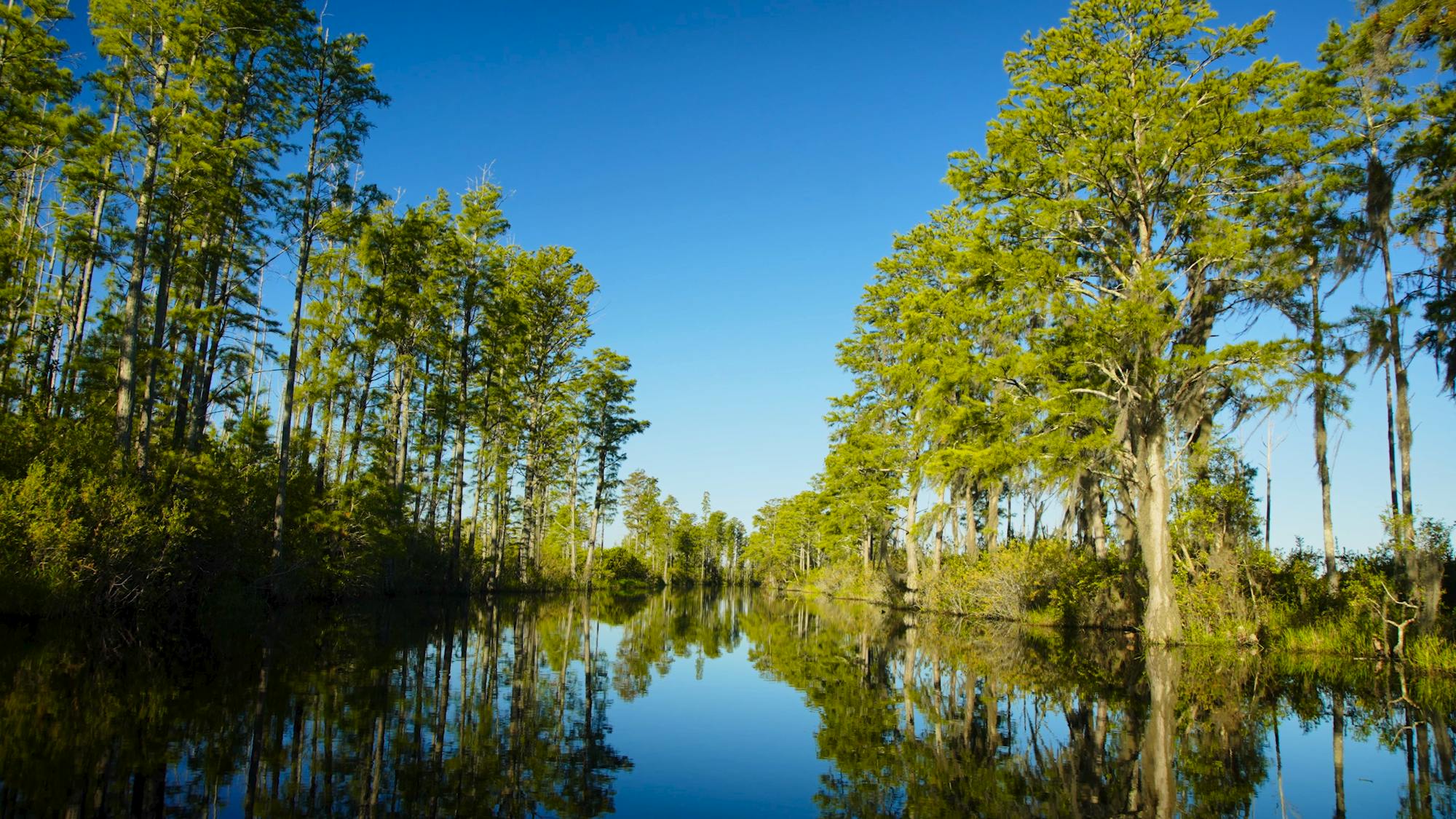Tweet“The proposed mine will bring bulldozers and draglines to the doorstep of the Okefenokee, threatening our country’s largest blackwater wetland. By any metric, the project defies common sense and should have never gotten this far. Georgia needs to find the courage to protect its greatest natural resource before it’s too late.”
A damaging strip-mining plan threatening the country’s last intact freshwater ecosystem has moved one step closer to reality. On Feb. 9, the Georgia Environmental Protection Division granted issuance of draft permits for Twin Pines Minerals to create the first phase of what could become a roughly 8,000-acre mine adjacent to the Okefenokee National Wildlife Refuge.
“The proposed mine will bring bulldozers and draglines to the doorstep of the Okefenokee, threatening our country’s largest blackwater wetland,” said Christian Hunt, Senior Policy Analyst for Defenders of Wildlife. “By any metric, the project defies common sense and should have never gotten this far. Georgia needs to find the courage to protect its greatest natural resource before it’s too late.”
By drafting these permits, the state of Georgia has deemed the degree of proposed damage to the Okefenokee ecosystem as acceptable, putting the enduring protection of nearly half a million acres of wetlands in immediate jeopardy. As permitted, the mine will come within 2.9 miles of the refuge, with later phases potentially coming as close as 400 feet.
Hundreds of thousands of advocates in and outside of Georgia have spoken out against the Okefenokee mining project, with roughly 200,000 comments submitted in support of the refuge. The draft permitting decision also comes as the National Park Service prepares to nominate the Okefenokee refuge to join the United Nations Educational, Scientific and Cultural Organization’s World Heritage List — heritage now threatened to be lost forever.
“This is a tragic outcome for one of our nation’s most important national wildlife refuges and global treasures,” said Defenders Southeast Program Director Ben Prater. “It is inconceivable to anyone who actually values Georgia’s environment to claim that this mine will not harm the critically important wetlands and wildlife of the Okefenokee ecosystem. We cannot allow greed and selfish corporate interests to consume our last wild places. EPD has one job. It must deny the permits."
Draft permits issued to Twin Pines cover air quality, groundwater use and surface mining. Now that the draft permits have been issued, the Georgia EPD is accepting public comments by mail or email until April 9, and will hold a public meeting over Zoom on March 5.
For over 75 years, Defenders of Wildlife has remained dedicated to protecting all native animals and plants in their natural communities. With a nationwide network of nearly 2.1 million members and activists, Defenders of Wildlife is a leading advocate for innovative solutions to safeguard our wildlife for generations to come. To learn more, please visit https://defenders.org/newsroom or follow us on X @Defenders.
Media Contact
News

Defenders Statement on Trump Rollback Opening Marine Monument to Fishing Industry







